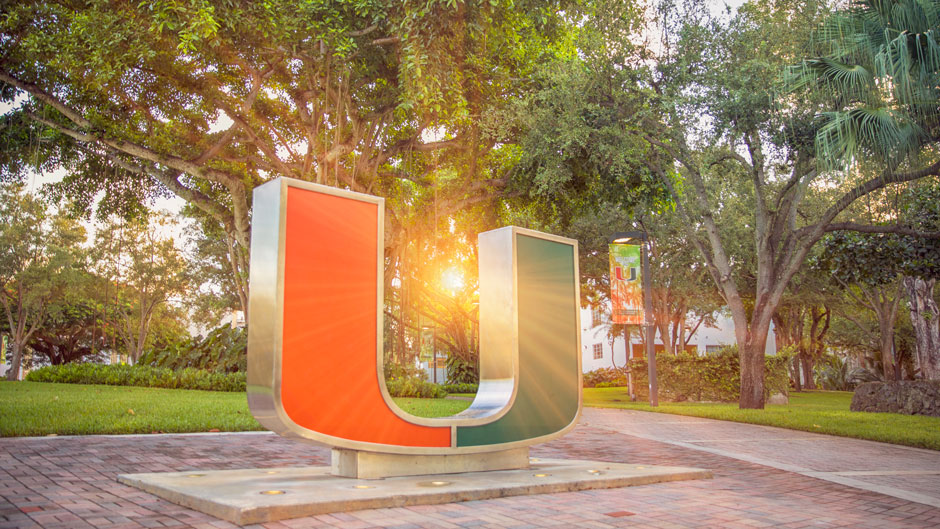The University of Miami has earned a 10-year reaffirmation of its accreditation from the Southern Association of Colleges and Schools Commission on Colleges (SACSCOC). The commission, which is the regional body for the accreditation of degree-granting higher education institutions across the southern United States, awarded the University the best possible review, granting full reaffirmation of accreditation with no additional report required.
“This is wonderful recognition of the University of Miami’s faculty and staff commitment to providing premier educational programs across its eleven schools and colleges, and backing it up with the resources, leadership, and innovations to merit the very rare 10-year affirmation,” said Jeffrey Duerk, executive vice president for academic affairs and provost. “This remarkable achievement demonstrates the driving vision to be an excellent university espoused in the University’s Roadmap to Our New Century.”
The culmination of the accreditation process is, according to the commission, “a public statement of an institution’s continuing capacity to provide effective programs and services based on agreed-upon requirements.”
Accreditation by the commission signifies that the University maintains a mission that is appropriate to higher education; has resources, programs, and services sufficient to accomplish and sustain that mission; and maintains clearly specified educational objectives that are consistent with its mission and appropriate to the degrees its offers, and that indicate whether it is successful in achieving its stated objectives.
Patty Murphy, associate provost for university accreditation, led the reaffirmation effort across the University’s colleges and departments with the support of the SACSCOC Steering Committee. This involved documenting the University’s compliance with over 90 accreditation requirements and standards and hosting a visiting committee on campus.
“The SACSCOC accreditation process is a three-year endeavor that involves every aspect of the University,” said Murphy. “I am so grateful to my staff for the hard work that they did to make this possible and to so many people across the University’s three campuses who provided information on their respective areas and gathered all of the evidence needed to demonstrate compliance. Thank you.”
In addition, a committee of faculty, students, and staff, chaired by William Green, senior vice provost and dean of undergraduate education, developed the University’s Quality Enhancement Plan, Learning through Dialogue and Discussion. The plan will provide undergraduates with discussion-based learning opportunities using the Harkness method, problem-based method, and flipped classroom method. Allan Gyorke, assistant vice president for academic technologies and assistant provost for educational innovation, manages the initiative, which is part of the Roadmap to Our New Century. Two classrooms have been renovated to support the new teaching methods, and seven courses, representing five of the University’s nine undergraduate schools and colleges, are being taught this semester as part of the program pilot
The visiting committee comprised of senior leaders and faculty from other institutions visited the University in spring 2018 and met with faculty, staff, students, and trustees to examine the University’s efforts in enhancing the quality of student learning, the quality of its programs, and its successes in accomplishing its mission.
The University’s accreditation was approved in December at a meeting of the commission’s board of trustees. The next reaffirmation will take place in 2028, with a standard interim report due to the commission in 2024.

